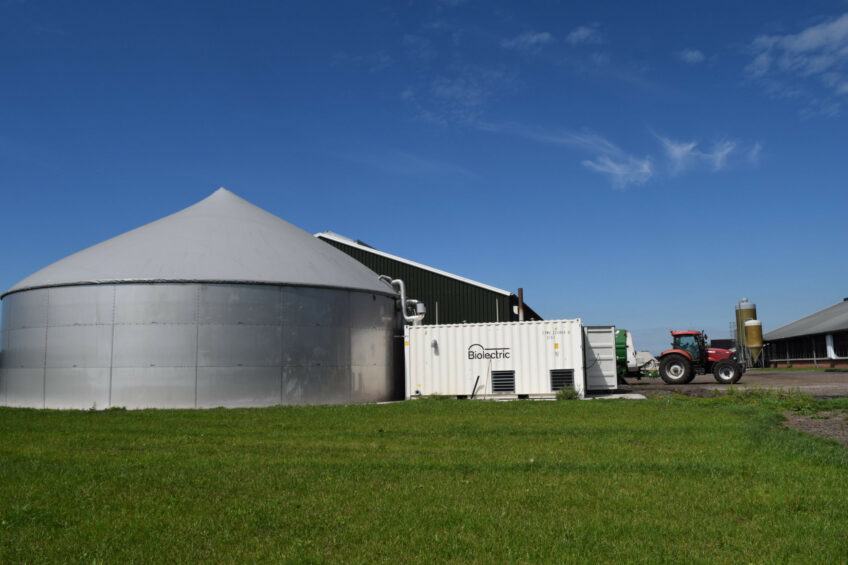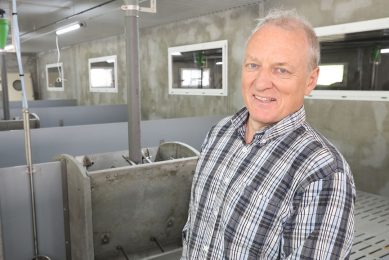Number of mini digesters on European pig farms is growing

A digester burns methane to produce electricity, which reduces the intensity of the farm’s greenhouse gas emissions (methane becomes CO2). In terms of a system for manure management, using a digester also greatly reduces odour.
Mini digesters obviously cost less than the full-sized versions. They generally require only a simple permit from the local government for installation, compared to the typically long and complex approval process required for their larger counterparts. They also come pre-constructed with fast installation.
In addition, minis are designed to run on manure alone, where large digesters generally need off-farm materials (especially fats) to ensure the bacteria thrive properly.
Extent of use
The Belgian company Biolectric seems to be the only digester firm so far to have digesters on pig farms in Europe. Having initially focused on dairy farms, the company deployed over 350 mini digesters throughout the continent on dairy farms, reports spokesperson Tom Daelemans. Pig farm installations number 20 at this point, with additional new installations coming in northern Italy, the Netherlands, Flanders and France.
Pig number and type
A farm with as few as 1,500 fattening pigs or up to 4,500 fattening pigs can sustain a mini, which produces 33kW of electricity.Before farmer investment, there is testing of the farm’s pig manure slurry, as biogas production and methane percentage is different for different types of manure (gilts and sows versus finishing pigs, for example).
Poland adoption
Poland is the leading market for mini-digesters at pig farms, where Biolectric’s long-lasting partner, Naturalna Energia.plus, has completed 15 installations. Another 5 are in progress.
Poland leads adoption for 2 main reasons. Naturalna Energia.plus CEO Adam Orzech explains that a large number of pig breeders in Poland are preparing for the obligation to have a carbon footprint certificate, without which it seems they will not be able to export meat to other EU countries. “Using a biogas plant,” he says, “will provide such a certificate.”
He also explains that in Poland, from November to the end of February, farmers are not permitted to fertilize their fields with slurry. “They have to build large tanks to store the slurry for at least 4 months,” he says, “but these restrictions do not apply to digestate, which encourages pig farmers to build biogas plants.”
Orzech adds that “it’s noteworthy that the system is highly automated, requiring no more than 15 minutes of the farmer’s day.”
App
The online ‘MyBiolectric app’ informs a farmer in real time how much electricity is being produced and gives farmers the ability to optimize the energy production of their installation efficiently. “Additionally, it also matches heat production with the farm’s heat demands, enhancing overall operational efficiency,” says Daelemans.








